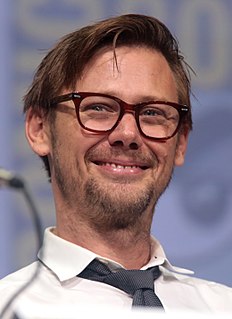A Quote by Ursula K. Le Guin
The book itself is a curious artifact, not showy in its technology but complex and extremely efficient: a really neat little device, compact, often very pleasant to look at and handle, that can last decades, even centuries. It doesn't have to be plugged in, activated, or performed by a machine; all it needs is light, a human eye, and a human mind. It is not one of a kind, and it is not ephemeral. It lasts. It is reliable.
Related Quotes
Although technology is proceeding at a dizzying pace, I believe that the human mind will always have control of itself. And since the human mind has a degree of infinity and imagination unlikely to be matched by a machine for a very, very long time, I don't think that we will become the machines of the machines.
I think that human beings, even the ones who are sometimes hurting you, are often very, very confused at their center. Even people who are doing things that are nefarious - it's often out of confusion. I know that it's tough to be a human whether you're good or bad. I'm acutely aware of that. If that comes through, then I'm really grateful.
Interruption, incoherence, surprise are the ordinary conditions of our life. They have even become real needs for many people, whose minds are no longer fed by anything but sudden changes and constantly renewed stimuli. We can no longer bear anything that lasts. We no longer know how to make boredom bear fruit. So the whole question comes down to this: can the human mind master what the human mind has made?
Every computer divides itself into its hardware and its software, the machine host to its algorithm, the human being to his mind. It is hardly surprising that men and women have done what computers now do long before computers could do anything at all. The dissociation between mind and matter in men and machines is very striking; it suggests that almost any stable and reliable organization of material objects can execute an algorithm and so come to command some form of intelligence.
The way to solve the conflict between human values and technology needs is not to run away from technology. That's impossible. The way to resolve the conflict is to break down the barriers of dualistic thought that prevent a real understanding of what technology is--not an exploitation of nature, but a fusion of nature and the human spirit into a new kind of creation that transcends both.







































